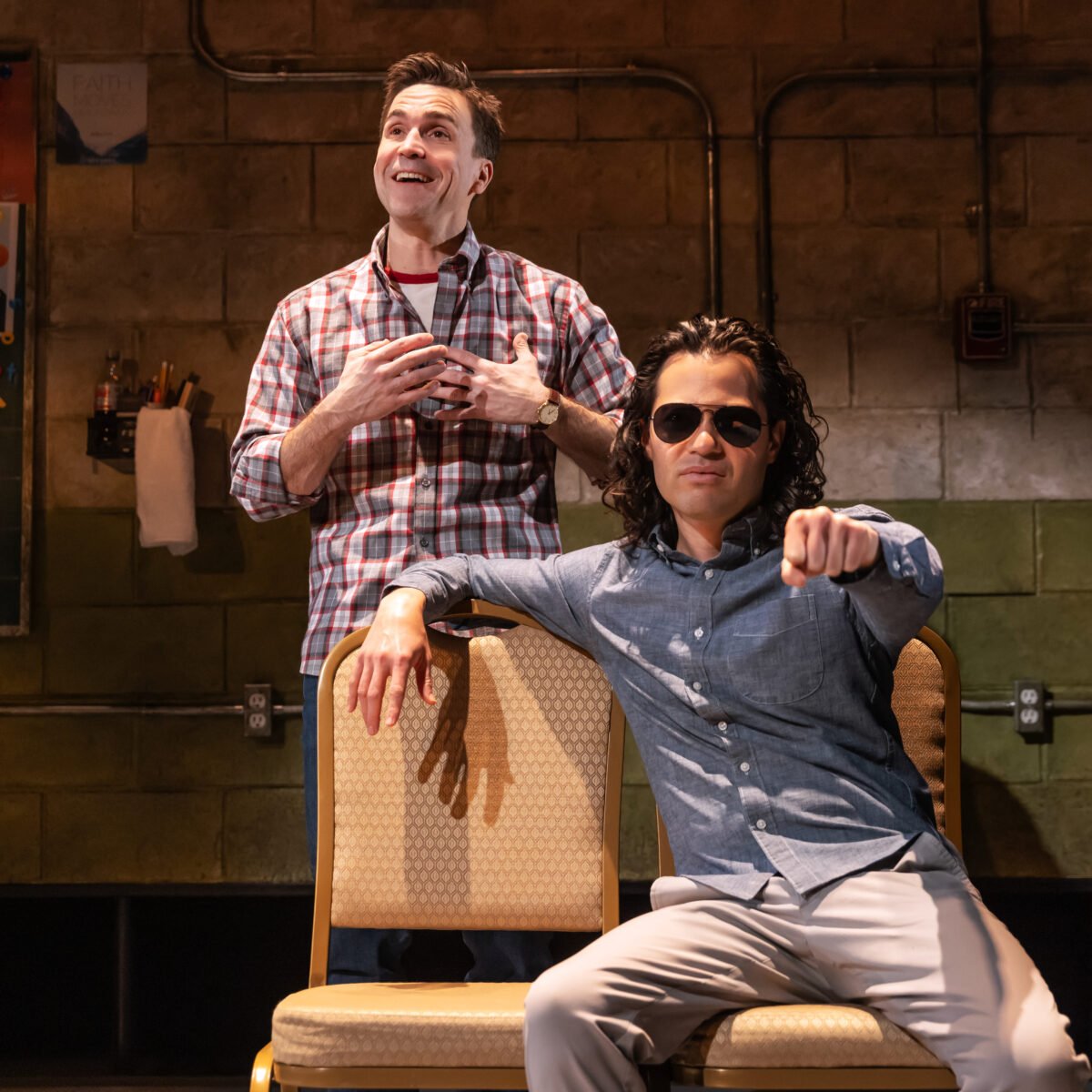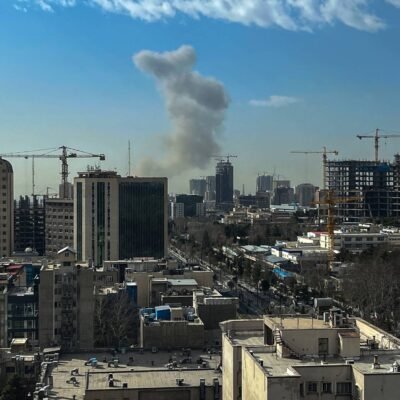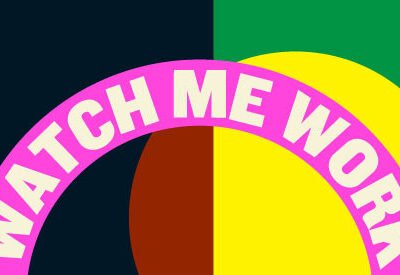Sean: A warmline, which is a phone number that you can call, and a peer-to-peer person in your industry will call you back to talk you through it. So we’re going to launch one here in Sarasota. We partnered with two local organizations, LightShare and Live Tampa Bay. LightShare is specifically a treatment center, so if you have underestimated how warm your line needs to be, we can instantly get you over to somebody who can help with suicide prevention. If you need a peer, we got you; if you need a trained medical professional, we got you.
Pharaoh: That’s fantastic. As someone who chooses to do a lot of counseling and peer-to-peer work, this comes up. Having an escalation resource in the back of my mind has really made that work much more effective. I’m empowered to keep this person safe, and I have a team to do that. That’s brilliant.
This person that writes super silly sitcoms and makes a million dollars doing it, is a person in recovery, and they’re very joyful, and they credit that to being sober.
Sean: Every boss I talk to says, “I’m a cool boss. Why doesn’t my staff come talk to me?” And it’s like, “nobody wants to come tell the boss that they’ve been drinking at work.” I know several lawyer friends that claim this saved their life. They called and had another lawyer who’s been there before who called them back and was a resource to them.
In addition, I made a simple video with puppets for performing arts organizations that will come out shortly, about: how do you create recovery friendly workplaces? How do you talk about it? What I learned is people don’t know where to begin. Can you fire somebody? Can you not fire somebody? Can you say something? What are you allowed to say? People just don’t know. And now with the addition of fentanyl, it’s a different game than it was two years ago. People aren’t trained for it.
We want to start amplifying artists in recovery in all the different ways. As a field, we have figured out that we don’t want to ask artists of color to just talk about trauma all the time, that we want to celebrate them for who they are in all the ways. I want to do the same for recovery.
I don’t need to produce a million rock bottom plays. I need you to know that this person that writes super silly sitcoms and makes a million dollars doing it is a person in recovery, and they’re very joyful, and they credit that to being sober.
Pharaoh: Yes, that vibrancy and that charisma is really essential. I love the idea of the warmline. I was curious about how that came about. When you were talking, I could sense that this has been in your heart for some time.
Sean: I struggle when people reach out to me and say, “Can you help somebody?” And I’m just like, “I’m not a medical professional. I can tell you what worked for me, but I’m ill-equipped to really handle it.” So I was like: What resources would I need so that when somebody calls and says, “I’m struggling,” I can say, “Great, I got you, and someone is going to contact you tomorrow.”
At New York Stage and Film, they let us send a group of sober artists to be in residency, to work on all of this. We had a meeting about what the project could be, and I realized I have never been in a room of just sober artists. We’ve always had to adjust our language. With just us, we could go to step eight of what we have to do. We were able to be like, “Let’s get past all that, what do we need? What do you wish you had?” Everybody says that they need other people, they need community. They need to know that other people have been there, that it’s possible that you can get out of it, no matter how far down you’ve fallen. And so the warmline really does that, it’s like, “Let’s put you in contact with who you need.”
In the first week, we got fifteen sober artists from around the country that were like, “Whoever calls, I’m there.” That was with no publicity. So we’re ready to launch the warmline in 2024 and test how it works.
Pharaoh: When you were talking about working with other folks in recovery, you referenced the deep sigh of working with other people who have a shared root, and a common language. Something that is also coming up for me with the warmline is the legitimization of peer-to-peer practice. I latched onto that perspective because I feel like in tarot, and with this warmline, it’s validating and empowering someone else’s intuition or intention towards change.
It’s not like the other person counseling is an expert. It’s just, “I see you. I did it. I’m here for you. What do you need? You’re changing, I’m here to witness this change.” Witness is such a powerful thing to give people.
Sean: Anybody who wants to be a peer-to-peer person, we do some training with them, we walk them through what it is, we provide where they can get resources. I won’t share names, but there’s a meeting in New York every day at 5:30 for Broadway, so that people can get ready to do their show that evening. I always go to it, and people are like, “I promised myself I’d never go drunk on stage, and then I did, and I realized I have a problem.” And you’re like, “Oh my God, this is it. You’re telling my story back to me.” That gives me such hope.
Just to have somebody call you who is in your industry, who has been there, is a huge step forward. We’re modeling it off of some other warmlines that are very successful. There’s one in Minneapolis that is about mental health. They’re able to estimate, at the end of the day, that they save the state something like $10 million because people don’t call 911, they don’t go to the emergency room, they don’t go to prison—all because they’re calling and someone is getting back to them. It’s a service that takes the pressure off of other social services in the state.
Pharaoh: I really love this idea because I’ve been on both sides of the domestic violence hotline—I used to volunteer, and then I had to call myself. The thing that impacted me in my experience was that the person who happened to pick up the phone really treated it like a warmline. They were just talking to me like, “What do you need? I’ve been there before.” It was much more of the kind of conversation that you’re talking about, and that conversation helped me cement leaving my abuser. Witnessing and activating someone, just saying, “Yeah, I see you, it’s happened,” is so powerful.
Those are folks who have gone through training, but a lot of them just have the personal experience and really care, and want to show up that day. It’s incredible that you’re making a space for people to do that around recovery.
Sean: I hope that people can be brave and put it out there. I have a lot of friends that have struggled with cancer. Their family might say, “We’re struggling with cancer, we need food delivered to the house. Here’s a place to sign up, here’s a place to donate.” And people are awesome, especially theatre people in a crisis, so they do it. I hope that people have the bravery to do the same thing when it comes to substance use conditions. And that it can be joyful, it can be fun.
One of my biggest things I want to change is—you’ve never seen a twelve-step meeting in a movie when it wasn’t six sad people in a church basement chanting your name back at you. Who wants to go to that? Then you go to an actual great meeting, and people are talking about the time they tried to steal a helicopter from the police and the room is roaring. There’s laughter and there’s joy, and you’re like, “Oh, wow. That sense of community, that sense of storytelling, the things that we as artists pride ourselves on, exists here.” And so it’s not just about what you’re subtracting from your life to get sober, it’s about the joy and the miracle that is about to happen for you on the other side.





